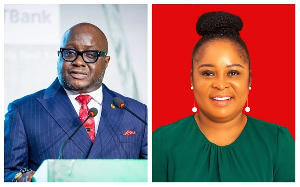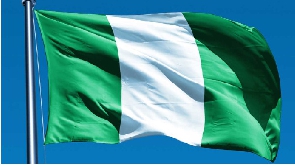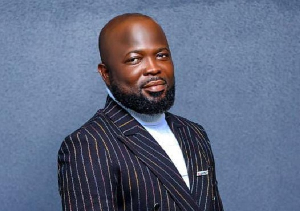Aid and borrowing from both domestic and external sources have not proven reliable in bridging the country’s infrastructure financing gap, panellists at the 8th edition of the Ghana Economic Forum (GEF) 2019 have said.
The Panel on one of the key topics -‘Bridging Ghana’s Financing Gap Through Domestic Capital Generation’ – noted that the huge infrastructure financing gap of about US$1.5billion facing the country every year can only be narrowed through improved domestic revenue mobilisation from individual savings, pension funds, among others.
“Government expenditure to GDP is around 19 percent – one of the lowest if you compare to other countries. This leaves a huge financing gap, and that gap has to be filled. And how are we able to fill that? It will definitely be done from three resources – borrowing, aid and internal revenue.
“The first two have ramifications on the economy; so, the only way out is our ability to generate internal revenue, and that means we must unleash the private sector’s potential to be able to fill that gap,” said Prof. Eric Osei-Asibbey, who is an Associate Professor at the Department of Economics, University of Ghana.
To also solve the problem of lack of term-term capital to finance infrastructure development, he said the potential of the private sector, considered the engine of growth of every economy, must be wholly harnessed and unleashed.
As a country, he said, “one of the key constraints for us has been the fact that we have a very weak saving culture”.
The panel comprised Jeff Gable, Head of Research at Absa Group, and reps from the Ghana Investment Promotion Centre, Ghana Revenue Authority and Verod Capital Management, and collectively concurred with Prof. Asibbey’s assertion that the most trusted way to overcome the current financing woes is to strengthen and encourage domestic revenue collection, savings and pensions funds.
For his part, Mr. Gable emphasised the need to have available a pool of innovative and attractive savings products capable of bringing to bear, in a formal way, some of the money that sits idle with people.
He lamented that if one looks at local pension funds – assets under management in the country per capita – it is barely US$100 per person, which he said is not good enough. “This speaks to the lack of long-term capital that we can generate domestically and put to work.”
To remedy the situation, he called for fruitful discussions about how the country can build the right environment to encourage long-term savings.
He also mentioned launch of the third annual Absa Africa Financial Markets Index – comprising 20 countries including Ghana. He said the annual index seeks to encourage discussions around ensuring that capital markets across the continent can be broad, open and transparent, and accessible.
Markets overseas like this, he added, will not only be easy to draw capital from to help build “all of the things that we need to be more prosperous, but it speaks to the idea that we need to make it easier for funds in Ghana to find their way into suitable savings vehicles and projects”.
The 2019 GEF was themed ‘Sustaining Financial and Economic Stability: The Key Priorities’.
Click to view details



Business News of Friday, 1 November 2019
Source: thebftonline.com
Look to pensions, internal revenues to bridge infrastructure gap - Economist
Entertainment
















